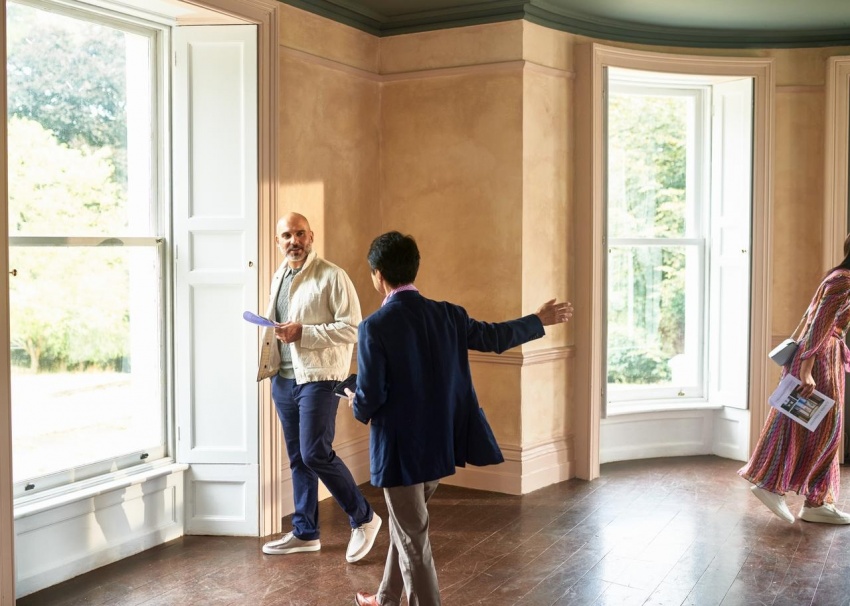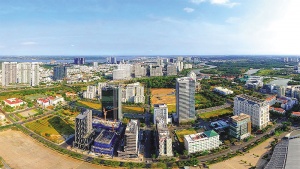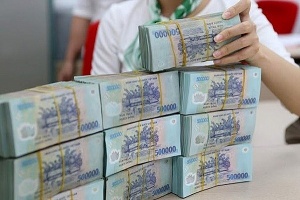INTERNATIONAL INVESTMENT
AND PORTAL
On October 2, Ho Chi Minh City People’s Committee added 23 new projects to the list of developments eligible for sale to foreign organisations and individuals. The policy is seen as a key step in drawing international capital inflows while positioning the city as a leading centre for globally integrated real estate in Southeast Asia.
Among the added projects are Van Phuc Residential developed by Van Phuc Real Estate Investment JSC, Masterise’s Masteri Thao Dien, and Quoc Loc Phat’s Song Viet Complex.
Phu My Hung Development Corporation tops the list with nine projects, mainly located in the southern part of the city, including The Panorama, Riverpark Residences, Sky Garden, and Scenic Valley.
This is the third announcement this year by Ho Chi Minh City authorities regarding projects eligible for foreign ownership. Two previous rounds covered 65 projects, bringing the total to 88 to date.

Experts believe that the city’s move to expand the list of foreign-eligible projects will not only improve market liquidity but also entice high-quality international talent.
As Ho Chi Minh City pursues its ambition to become an international financial hub, a free-trade centre, and a semiconductor industry base, the demand for housing among foreign experts and engineers is expected to grow strongly. The availability of more eligible projects will help retain this talent pool while boosting the city’s overall real estate appeal.
According to Nguyen Hoang, a market research expert, disclosing which projects are eligible for foreign buyers helps reduce legal risks for purchasers and enhance transparency and competitiveness among developers.
“This is also a positive signal for the mid- to high-end apartment segment, which continues to see strong demand from international buyers,” Hoang noted.
However, Hoang also cautioned that along with opportunities come certain challenges. Vietnam’s Housing Law clearly stipulates the maximum ownership ratio for foreigners in any given building or area.
“Therefore, strict supervision and control of transactions are necessary to prevent over-limit ownership or speculative manipulation in the market,” he added.
Nguyen Khanh Duy, director of Residential Sales at Savills Vietnam, revealed that after a slowdown caused by various external factors, foreign capital is gradually returning to Vietnam’s property market.
“The current legal framework has become much more open, especially with the 2023 Housing Law allowing foreigners to own commercial housing for 50 years with possible extensions. However, a key limitation remains, the 2024 Land Law still does not recognise foreigners as ‘land users,’” Duy explained.
“Foreign buyers can legally own residential property, but the land-use rights remain with the designated legal entity. Therefore, contracts and certificates need to clearly define ownership rights to protect buyers and minimise legal risks,” he added.
In terms of investment preferences, foreign buyers typically look for mid- to high-end apartments of moderate size, developed by reputable international brands, and located in central districts or near metro lines.
Typical transaction values range from $500,000 to $1 million per unit, with most investors coming from Singapore, Hong Kong, South Korea, Taiwan, and the overseas Vietnamese community, according to Savills Vietnam.
“A controlled opening policy will help support primary prices and raise service standards. Developers with projects on the approved list will have a significant advantage in accessing international sales channels,” Duy said.
Under current regulations, foreign organisations and individuals are permitted to purchase housing in Vietnam if they meet the required legal conditions. Specifically, foreigners can only buy commercial housing in projects that do not affect national defence or security, and their ownership ratio must not exceed 30 per cent of the total units in a condominium building or 250 detached houses within the same ward.
When seeking homeownership, foreign entities and individuals must provide documentation proving their eligibility to own property in Vietnam.
For foreign organisations, eligibility requires holding a valid investment registration certificate. If an organisation does not already have one, it must provide an investment certificate, investment registration certificate, or other official documents issued by competent Vietnamese authorities authorising its establishment or operation in Vietnam.
For foreign individuals, eligibility requires a valid foreign passport and a written declaration confirming they are not entitled to diplomatic or consular privileges or immunities. They must also provide proof of entry into Vietnam, such as a valid visa stamp or equivalent legal document, to demonstrate their eligibility for property ownership.

Law revisions necessary to clarify foreign property rights
Experts continue to point out discrepancies in the laws that touch on foreign ownership of property in Vietnam, in the hopes that current amendments will take them into account.

MB, HDBank, and VPBank to lift foreign ownership limit
A new governmental decree covering the purchasing of shares in Vietnamese credit institutions by foreign investors has increased the ability of some commercial banks to seek more investment from overseas.

TTC AgriS eyes full foreign-ownership room to ride Vietnam’s potential market upgrade
TTC AgriS, the country’s largest sugar producer, has moved to keep its foreign ownership limit at 100 per cent as part of preparations for an anticipated re-rating of the Vietnamese stock market from frontier to emerging status.



















